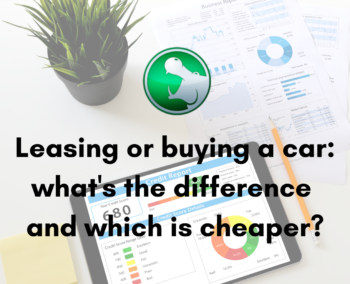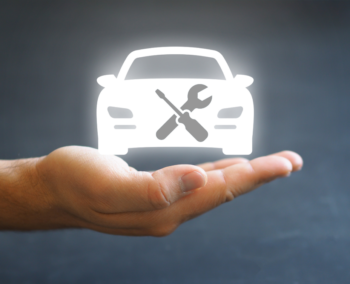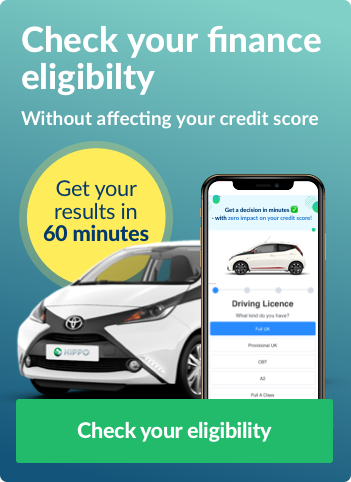
At first, car finance might seem daunting, especially when it comes to the decision of whether to buy or lease. With a variety of ways you can fund a car, on the face of it, they all seem pretty similar – monthly repayments and set terms – which can make your decision seem even harder. However, leasing works very differently from other car finance in a variety of ways. Of course, one glaring difference is that leasing often seems cheaper. And it definitely does have the advantage if you’re looking to maximise your spending power and minimise the monthly effect on your bank balance. But there’s much more to it than that. So when it comes to your next vehicle, which type of finance should you choose? Which is better; leasing or buying a car? What’s the difference and which is cheaper? We find out…
What’s the difference between leasing and buying a car?
The obvious difference between leasing and buying a car is that if you lease it, you give it back at the end of the term.
If you buy it – whether outright or through finance – it’s yours to keep for as long as you want.
But ownership isn’t the only difference.
Monthly payments and upfront costs
Many people will pick leasing because it’s the more affordable option.
Leasing usually requires little to no deposit, and the monthly payments also tend to be cheaper than when purchasing a car, because you’re not paying it off to own it.
Mileage
When you buy a car, you can drive it for how long you want, where you want.
When you lease a car, your agreement will state a mileage limit – usually around 10,000-15,000 miles a year.
If you go over the limit, you’ll be charged a fee when you return the car.
End of term
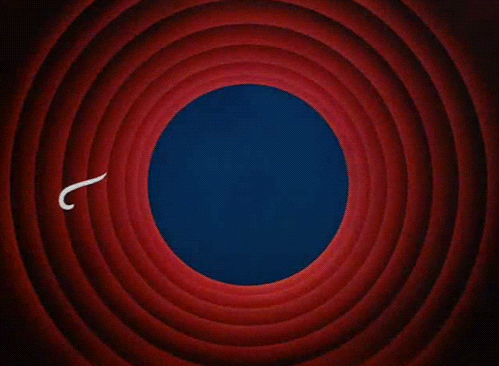
Whether you lease or buy your car on finance, you’ll have an agreed period of time over which you’ll be making monthly payments.
When your finance agreement comes to an end or once you’ve repaid the balance, there will be no more payments – the car is yours.
When your lease comes to an end, meanwhile, to have access to a car, you’d have to get a new lease (or finance if you choose) deal and start making payments again.
Future value
A car is an expensive purchase, but not necessarily an investment. Whereas a major purchase like a house usually goes up in value over time and can make you money, a car’s value typically depreciates.
The difference with leasing is that you only cover the depreciation of the car, rather than the whole thing.
So, the same concerns about how much the car would be worth in the future wouldn’t apply with a lease, because you never have to sell it.
Maintenance, wear and tear and customisation
When you buy a car, it’s yours. You can do what you like with it. If you don’t maintain it, you only have yourself to answer to.
When you lease a car, though, you need to bring it back in good condition or you could find yourself paying extra.
This includes any extras you want to add to customise the car too. And if you customise the car after the sale, you have to pay for the modifications to be removed before you hand it back.
On the other hand, maintenance can be easier and cheaper with leased cars simply because they tend to be newer.
That means they’re typically under warranty – reducing your outgoings – and you can usually include a maintenance package in your agreement.
What are the different types of lease finance?
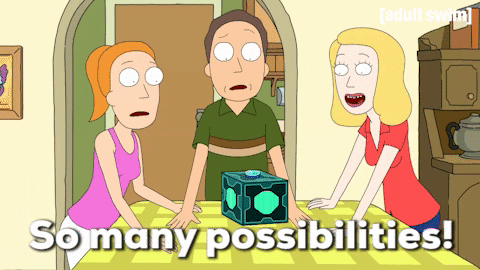
Once you’ve got a grasp on the differences between leasing and buying a car, it’s time to look at the different types of lease options.
Personal contract hire (PCH)
Personal contract hire is leasing in its purest format. With PCH you essentially rent the car for a long period – usually around two years, but there are various lease periods.
Typically, you’ll be asked for an initial payment followed by monthly payments for the length of the lease term – although here at Hippo, all our vehicles come with a £0 deposit option.
Many lease providers will also offer a maintenance package for an extra fee. And while road tax is also often included in the price of the lease, anything else such as insurance is up to you.
With PCH, there’s a mileage clause to consider. When you take out the lease, you’ll specify your annual mileage. This has an effect on your monthly payments, as the more miles you drive, the higher the payments will be.
At the end of your lease, the car goes back to the provider. You never own the car, and there isn’t an option to buy it.
It’s good for those who want low monthly payments and enjoy driving a new car every few years without the responsibility of owning a vehicle.
- READ: Personal Contract Hire (PCH) vs Hire Purchase (HP) – which type of car finance is best for you?
Personal contract purchase (PCP)
PCP agreements can also offer a similar degree of flexibility to leasing.
With a PCP, you also pay a set amount of monthly payments to cover the car’s depreciation over the agreed term, plus interest.
And like leasing, PCP also comes with a mileage allowance, which if exceeded, will cost you extra.
The difference with PCP and PCH is at the end of the agreement. Unlike leasing where you hand the car back, with PCP, you have a choice to make.
You can either hand the car back or you have the option to buy. If you decide to make the optional final balloon payment, the car will officially be yours.
Alternatively, you can also part exchange the car for another and any equity in the vehicle can be used as a deposit.
- READ: Personal Contract Purchase (PCP) vs Hire Purchase (HP) – which car finance type is best for you?
Lease purchase
With Lease purchase (LP), you pay a deposit at the start of the agreement followed by a period of fixed monthly payments.
The difference with LP is at the end of the term, you’re obligated to pay the lump sum balloon payment to keep the vehicle. Or alternatively, you can part-exchange and take a new lease deal.

Pros of Leasing
- You can change your car every few years and have a new vehicle under the manufacturer’s warranty.
- You can drive a higher-priced, better-equipped vehicle than you might otherwise be able to afford.
- The monthly payments are typically cheaper than traditional car finance.
- You don’t need to worry about depreciation.
- You can include road tax and a maintenance package into your monthly payments for ease.

Cons of PCH
- At the end of the agreement, you don’t own the car. If you buy a car on finance, once the payments are finished, it’s yours to keep without any finance costs.
- There are annual mileage restrictions.
- If you damage the car outside of fair wear and tear, you’ll be charged for repairs.
- Other restrictions may apply, such as taking your car abroad, depending on the plan’s terms and conditions.
- The car must be returned in the same condition, minus fair wear and tear, as when you first leased it.
What’s cheaper, leasing or buying a car?
Whether it’s cheaper to buy or lease a car depends on several factors.
Almost all cars lose value as soon as you drive them for the first time. But when you buy, you can cash in on its remaining value later down the line when you come to sell it.
With a lease, you’re only covering the depreciation. You don’t have to pay extra to own the car, but you also don’t benefit from its resale value at the end of your agreement.
Leasing can be a good way to maximise your spending power. You don’t have to pay a lump sum upfront, the payments are lower, and it makes driving a new car much more affordable.
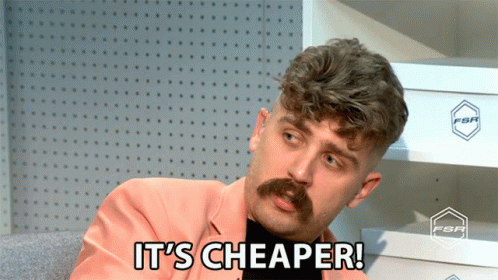
It may not be cheaper in the long run, but it certainly can make driving the car you want more affordable.
Buying a new car outright is generally deemed the cheapest way to get hold of a vehicle, as you’re not tied to any repayments or interest.
However, this isn’t always a financially viable option for many.
So, the answer is in the long run, owning the vehicle outright is cheaper – as long as you plan to keep it for some time.
However, if you think you’ll change your vehicle every few years, leasing usually works out best.
Ready to find your new car?
If you’ve made a decision on the type of finance you want, now’s the time to find the right car for you.
By using our quick and free Apply Now tool, you can see which lenders will approve your application without affecting your credit score. Then, you gain access to personalised deals, so you can find the right car for your needs and budget.
It’s easy to get started. Just Apply Now.

